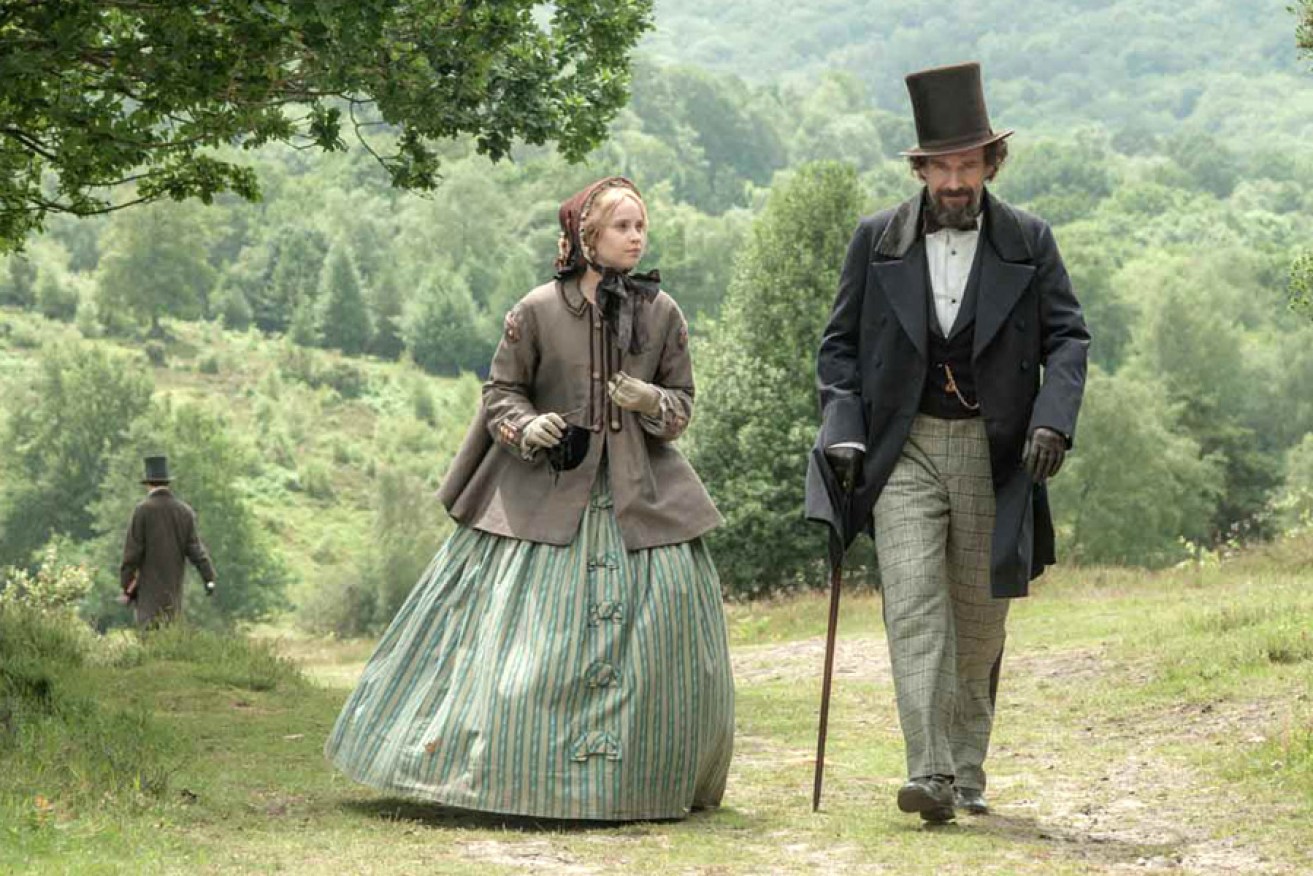Ralph Fiennes produces, directs and stars in this adaptation of the prize-winning book The Invisible Woman, by Claire Tomalin. Such combinations can signal that ego has the upper hand or that the leading actor simply has greater faith in a story than do others. Either way, this is a mixed success.
Finely lit, with especially careful attention given to interiors and skin tones, the movie is a relatively quiet sketching of the 1857 meeting and subsequent relationship of young actress Nelly Wharton Robinson (Felicity Jones) and the considerably older Charles Dickens (Fiennes). Theirs is hardly a passionate union, and certainly not to be made public, but it is what each needs – if not always for the same reasons.
We first see Nelly in later life when she is married to headmaster George Wharton Robinson (Tom Burke) and mother to young Geoffrey (Tommy Curson-Smith). Approaching 40, though the make-up does not convey this well, she appears troubled and is inclined to walks on the beach. As she watches a school play, we are taken back into her past. This movement between the present and her earlier life is the staple structural frame of the movie.
The story has a generally sombre tone. Nelly is in awe of and somewhat charmed by Dickens but is resentful of her mother’s virtual giving her over to this famous man of the arts. There is a brief and telling comment from her regarding both her own position and the plight of women, despite her admiration for Dickens: “You men, you lead men’s lives…”. Still, the arrangement means that her single mother and the (albeit more talented) sisters in her acting family will be looked after, too.
Fiennes mostly portrays Dickens with an oddly detached and superior manner, as if he’s able to sail through life much as he chooses. Perhaps true. He is, of course, central to the story and reception of the film, which is problematic for the concept since it tends to overshadow Nelly.
A quiet and compliant female nature may be seen as redolent of an era when women could be expected to be undemonstrative, even passive. It leaves little scope for expression and for our understanding of Nelly except through a sense of repressed feeling. The camera lingers on Jones’s skin and permanent pout but static shots, however lovely, are no substitute for an indication of psychological depth.
Mrs Dickens is presented as something of a drudge, and certainly not the kind of figure who understands the creative spirit of her husband. One has to consider the manners, including the seeming cruelties, of the time in assessing the behaviour of the characters but there is no doubt Mrs D. is treated poorly.
Nelly does find a normal life of warmth and vitality with George after Dickens dies, though it does not mean that she has escaped loss and emptiness altogether. She is a haunted figure and continues to live a shadowed life.
Finally, I cannot help mentioning that a brief few lines from the play rehearsal when Nelly and Dickens meet are echoed in the actual production seen at the end. It is unnecessary, and a reminder that some writers and/or directors don’t remember when to trust their audience, however big they may be.
More InDaily film reviews:
Any Day Now
The Grand Budapest Hotel
Noah
Half of a Yellow Sun
I, Frankenstein
Wadjda
Cuban Fury
Need for Speed
Non-Stop
Nebraska






